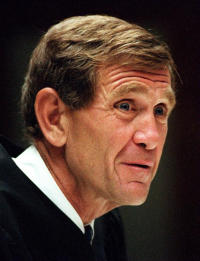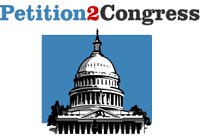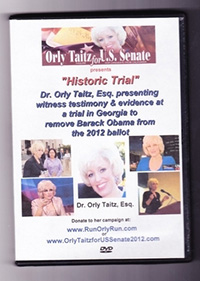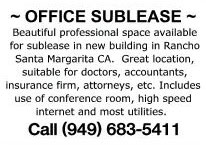The strange case of Judge David O ‘Carter (What turned this decorated war hero into a puppet for the Obama regime?)
Posted on | August 23, 2010 | 1 Comment
world.
* Judge Wingate, to Pastor John Bunyan, just before he sentenced him to 6 years in prison (for preaching the Bible) – where he authored ‘Pilgrim’s Progress’.
Having personally attended both of these hearings – as one of the 40+ plaintiffs – I can verify these statements below to be true and correct, so help us God.
Neil B. Turner
Citizens for the Constitution
The strange case of Judge David O. Carter
https://www.thepostemail.com/2010/08/22/the-strange-case-of-judge-david-o-carter/
WHAT TURNED THIS DECORATED WAR HERO INTO A PUPPET FOR THE OBAMA REGIME?
by David F. LaRocque 
(Aug. 22, 2010) — On August 11, 2010, an Appellants’ Opening Brief was filed with the United States Court of Appeals for the Ninth Circuit by Dr. Orly Taitz, in the case Pamela Barnett, Alan Keyes, et al v. Barack Obama et al. This appeal is seeking to overturn the decision of Judge David O. Carter of the United States District Court for the Central District of California in an order of dismissal issued on October 29, 2009. The grounds for the appeal are based on an assertion that the “District Court acted with bias, lack of impartiality, and under improper and undue influence from (the) Obama administration.”
The original case was filed on January 20, 2009 on behalf of over 40 plaintiffs, including many retired officers and enlisted members of the U.S. military, Ambassador Alan Keyes (2008 presidential candidate of the American Independent Party), and Gail Lightfoot (a Libertarian Party member and write-in candidate for vice president). The plaintiffs were seeking “a judicial review and declaratory relief on the issue of legitimacy for the U.S. presidency and (the) position of Commander-in-Chief by Barack Hussein Obama.”
The brief goes on to assert that “there is ample evidence of his (Obama’s) illegitimacy to (the) U.S. presidency due to his use of another person’s Social Security number…; due to the lack of his long-form birth certificate with the names of a doctor and a hospital; due to the fact that his mother’s passport records show a different last name for him (Obama); and other records and national data-bases show(ing) him (Obama) using multiple Social Security numbers, several different names, different birthdates, and different countries of origin.”
A similar suit was filed by a second attorney, Gary Kreep, representing plaintiffs Wiley Drake and Markham Robinson. This lawsuit was later merged with the Barnett action, over the objections of both attorneys, in a hearing before Judge Carter on July 13, 2009.
When the plaintiffs and their attorneys learned that the district court judge assigned to the case was Judge David O. Carter, they were elated and greatly encouraged. Judge Carter is a graduate of both UCLA and the UCLA School of Law, and a highly experienced and respected jurist. Judge Carter has a background as a criminal prosecutor and as a professor at several institutions, including the University of California at Irvine, where he has received the school’s Distinguished Professor Award three times. He also lectures frequently at judicial conferences worldwide, and at the California Judges College, the Judicial Criminal Law Institute, and the Ninth Circuit Judicial Conference.
In addition to his excellent legal background, Judge Carter is a war hero. He served as a commissioned officer in the United States Marine Corps, with combat duty in the Vietnam War, where he fought in the Battle of Khe Sanh in early 1968 when the Marine Khe Sanh Combat Base (KSCB) was under siege for 77 days.
A Wikipedia entry describes the conclusion of that battle:
During the battle a massive aerial bombardment campaign (Operation Niagara) was launched by the U.S. Air Force to support the Marine base. This campaign used the latest technological advances in order to locate PAVN (People’s Army of Vietnam) forces for targeting. The logistical effort to support KSCB, once it was isolated overland, demanded the implementation of other tactical innovations in order to keep the Marines supplied.
In March 1968, an overland relief expedition (Operation Pegasus) was launched by a combined Marine/Army/South Vietnamese task force that eventually broke through to the Marines at Khe Sanh. The battle was a tactical victory for the Marines, although it had no clear strategic implications; some historians have observed that the PAVN frontier battles prior to the general Tet Offensive of early 1968 served to distract American and GVN attention as Viet Cong forces were assembled.
Marine First Lieutenant David O. Carter was awarded a Purple Heart and the Bronze Star (the fourth-highest combat award of the U.S. armed forces) for his bravery under fire at the Battle of Khe Sanh.
To the plaintiffs in Barnett v. Obama, Judge David O. Carter seemed like an answer to their prayers. How could they ask for a more perfect judge? In a case which required a combination of an extraordinary judicial temperament, demonstrated courage, and unquestioned loyalty to the United States Constitution, Judge Carter seemed to have all of these qualities in abundance. Moreover, since there were strong indications of serious criminal acts of election fraud in the events leading up to the conclusion of the 2008 presidential election, it was felt that Judge Carter (given his prosecutorial background) was likely to share the plaintiffs’ desire to see the case heard on its merits, and that he would insure that an appropriate judicial environment was maintained to insure that would happen.
The first hearing in the case was held in the federal courthouse in Santa Ana, CA on July 13, 2009 with Judge Carter presiding. Interested citizens lined up early outside the courthouse for security screening. After a lengthy delay, the courtroom was finally opened for seating. This writer was an eyewitness to the proceedings.
Once the hearing got under way, it seemed to bog down in a lengthy dispute over the question of whether an amended complaint was properly served on the defendants by Attorney Taitz. Later in the hearing, it became apparent that there were problems between the attorney for Drake and Robinson (Mr. Kreep), and the attorney for the Barnett plaintiffs (Dr. Taitz).
The central issue in dispute was between the respective attorneys regarding the meaning of the presidential eligibility clause in the Constitution. Attorney Kreep insisted that the Constitution does not require U.S. citizenship of both parents, while Attorney Taitz argued that this requirement is intrinsic to the Article II requirements.
Attorney Taitz was seeking a separation of the cases for trial. However, Judge Carter would not accept the prospect of the two cases being tried separately, insisting that a higher court would eventually merge them in any case, and that the goal of an expeditious resolution of the case on its merits would be best served by merging the cases. The respective attorneys finally agreed to combine the cases under protest after a private discussion also witnessed by this writer during a lengthy recess but failed to resolve their differences.
Setting aside the lengthy interchanges which took place over the issues described above, the remaining portion of the proceedings dealing with the substantive issues of the case was relatively short. During that time, the following comments were made by Judge Carter and have been excerpted from the official transcript of the proceedings:
P. 48: “I wish this would be resolved on its merits quickly…he’s either not president or he is.”
P. 52: “I mean, if he’s not president, he shouldn’t be president; and if he is, he should be. And we need to resolve this on the merits.”
P. 37 “If he doesn’t meet the criteria, he’s not the president of the United States.”
P. 53: “When you come back to this court, I’m going to be putting a lot of pressure on both of you to produce. And therefore …expect this case to move.”
P. 53: “So if you want this case expedited, I’ll expedite it, and I’ll get the documents in front of this court, I mean immediately. There’s no question about that.
(To Plaintiff’s counsel) Because if you’re correct, then from your perspective and the country’s perspective, he’s not president.
(To U.S. Attorney) If you’re correct, we set this aside immediately. It’s done and the country isn’t sitting there wondering who the Commander-in-Chief is or who the President of the United States is.”(Emphasis added)
P. 58: “I think we finally got it into a posture that we can decide it on the merits.”(Emphasis added)
When the hearing ended, the plaintiffs and their attorneys felt confident that there would be no dismissal of this case on the technicality of “standing” (as had occurred in several other prominent eligibility cases), and that it would finally be heard on its merits by Judge Carter. Further, the plaintiffs felt that those merits would be very strong, probably even conclusive, once the fruits of the discovery phase of the trial became available.
Then, in early October, word came out that something very strange had happened. Judge Carter had hired a new law clerk, but not just any law clerk.
Judge Carter could have hired a law clerk from among the recent graduates of any one of a number of fine law schools (including his alma mater, the UCLA School of Law) or from any one of hundreds of elite law firms in California and across the country. Instead he hired Siddharth Velamoor, from the Seattle law firm of Perkins Coie, the firm which represented the presidential campaign of Barack Obama and the firm where Obama’s White House Counsel Robert Bauer was formerly a partner. Bauer is married to Anita Dunn, former White House Director of Communications, who is infamous for her publicly-expressed deep admiration for the political philosophy of Mao Zedong, the greatest mass murderer in the history of mankind according to author and former Red Guard Jung Chang in her masterpiece biography of Mao entitled Mao: The Unknown Story.
Here is Attorney Taitz on the Velamoor engagement:
While originally the presiding judge, David O. Carter seemed to be willing to show some impartiality, it quickly dissipated from the beginning of October 20009, when Judge Carter hired as his law clerk an attorney, Sidharth Velamoor, (a former) employee of Perkins Coie, that represented Obama in most of the litigation where Obama’s eligibility was challenged. Moreover, White House Counsel Robert Bauer is a senior partner in Perkins Coie, and personally opposed (both) Taitz and Kreep in a prior similar action.
Velamoor not only came from Obama’s defense firm, he also had a peculiar similarity to Obama in his education and background. Velamoor is listed in some of his curricula vitae as graduating from Columbia Law School, while others show him graduating from an obscure Commenis Law School in Slovakia. Obama is known as a person who has sealed most of his vital records, among them his Columbia University records. It is not clear how much time Obama spent actually studying at Columbia University, how much did he spend abroad, specifically in Pakistan, and got equivalency credits from Columbia, just as Velamoor.
To say that the Barnett plaintiffs were stunned on hearing this news is putting it mildly. This astonishing new development was not only unbelievable; it was incomprehensible. How could this happen in America? On the face of it, this surprising action by Judge Carter was so far outside the norm of appropriate judicial conduct that it seemed unimaginable. It even gave off an odor of corruption and manipulation of the judiciary that was so out of character with what we knew of Judge Carter that one had to wonder – what was the nature of the pressure that was brought to bear on Judge Carter that he would even entertain such a course of action?
To the Barnett plaintiffs and their attorneys, it seemed that Barack Obama had literally stepped into Judge Carter’s court room and sneered at us, telling us literally that “I have so much power that you cannot touch me! I am untouchable and I will do as I please.”
A second hearing was held on October 5, 2009 at the federal courthouse in Santa Ana, CA, again with Judge Carter presiding which this writer attended. The security procedures upon entering the courthouse had tightened considerably, and security personnel reviewed identification, recorded names and addresses, and issued security badges to all attendees. After the courtroom was opened for seating, it soon filled to capacity. In order to accommodate the unseated observers, Judge Carter arranged for a second courtroom with closed-circuit TV for viewing of the proceedings.
Once the hearing commenced, a change in tone became immediately apparent. It seemed that Judge Carter was much more skeptical of the plaintiff’s case, and noticeably more adversarial in his exchanges with Attorney Taitz. In an affidavit regarding this hearing which I provided in connection with the August 11 appeal, I stated that “I thought (the) change in Judge Carter’s demeanor from one hearing to the (October 5) hearing…was striking and quite surprising.” Another affiant made a similar statement in her affidavit: “After the hearing a large group of people met outside and declared that we couldn’t believe the change in the judge’s demeanor. One of the gentlemen, who said that he had known Judge Carter for a long time, stated that he had never seen him like that before.”
On October 29, 2009, a not unexpected but nevertheless extremely disappointing favorable ruling on Obama’s Motion for Dismissal was released by Judge Carter in the Barnett case. Here are the words of Judge Carter (if these are in fact his words) in what the Barnett plaintiffs feel was a betrayal of the American people:
Plaintiffs have expressed frustration with the notion that this case could be dismissed on separation of powers, political question, or standing grounds, asserting that these are mere “technicalities” obstructing plaintiffs from being able to resolve the case on the merits of President Obama’s birth and constitutional qualifications. As the Supreme Court has stated, “It is indeed a singular misconception of the nature and character of our constitutional system of government to suggest that the settled distinction…between judicial authority over justiciable controversies and legislative power as to purely political questions tends to destroy the duty of the judiciary in proper cases to enforce the Constitution.” Pacific States Telephone and Telegraph Co. v. Oregon, 223 U.S. 118, 149-150, 32 S. Ct. 224 (1912) Interpreting the Constitution is a serious and crucial task with which the federal courts of this nation have been entrusted under article III. However, that very same Constitution puts limits on the reach of the federal courts. One of those limits is that the Constitution defines processes through which the President can be removed from office. The Constitution does not include a role for the court in that process.
Plaintiffs have encouraged the Court to ignore these mandates of the Constitution; to disregard the limits on its power put in place by the Constitution; and to effectively overthrow a sitting president who was popularly elected by “We the People” – over sixty-nine million of the people. Plaintiffs have attacked the judiciary, including every prior court that has dismissed their claim, as unpatriotic and even treasonous for refusing to grant their requests and for adhering to the terms of the Constitution which set forth its jurisdiction. Respecting the Constitutional role and jurisdiction of this Court is not unpatriotic. Quite the contrary, this Court considers commitment to that constitutional role to be the ultimate reflection of patriotism.”
THERFORE, for the reason stated above, Defendants’ Motion to Dismiss is GRANTED.
IT IS SO ORDERED.
DATED: October 29, 2009
(signed)
____________________
DAVID O. CARTER
United States District Judge
Well, what do you think of that?
Do those words sound like the words of Judge David O. Carter as we heard him on July 13, 2009? Or do those words sound eerily similar to the words of so many uttered against the so-called “birthers” which have appeared in the mainstream media? Is it possible that those words could have come from one Robert Bauer?
More importantly, what if the president is not the president? If the person sworn into office as president is not constitutionally qualified to serve in that office, is he, in fact, the president? How does the Constitution “limit the reach of the federal courts” to provide a remedy in this situation, when it is apparent that numerous criminal acts must have taken place for the conspiring parties to have installed an ineligible person in the office of President of the United States?
What if the putative president is not even a U.S. citizen, much less a natural born Citizen, as the Constitution requires?
What legally admissible evidence do the American people have that Barack Obama is, in fact, a U.S. citizen, or that he is eligible to serve in the office of president?
If we cannot get such evidence from you, Judge Carter, and Congress will not get it, and Obama will not provide it, where do we get it?
What if the election process which put this man’s purported election before the Electoral College was characterized by massive election fraud to a degree never before seen in this country?
What if the members of Congress, who ratified the results of the Electoral College vote, failed to fulfill their constitutional duty to verify that the person elected to the office of president was constitutionally eligible to serve?
What if the sixty-nine million people who voted for Barack Obama believed, in error, that he was actually eligible to serve as president according to the Constitution when they voted for him, as they were assured by those functionaries of the Obama campaign who presented only forged documents on the internet as proof of such eligibility?
And finally, Judge Carter, how do you square your ruling with the words of Justice Marshall in Marbury v. Madison:
The Government of the United States has been emphatically termed a government of laws, and not of men. It will certainly cease to deserve this high appellation if the laws furnish no remedy for the violation of a vested legal right.
I ask you, sir – if Article II of the United States Constitution sets forth certain unequivocal and indisputable requirements to serve in the office of president, do those requirements not imply the existence of a “vested legal right” of the people to have a constitutionally-qualified president”?
And if the person elected to that office has not only failed to demonstrate conformance with those requirements, but has refused to do so;
And if the Congress refuses to act to resolve this controversy;
And if the courts repeatedly refuse to hear cases brought before them which seek a remedy for this violation of the vested legal right of the people to have a constitutionally-qualified president on the grounds of the “mere technicalities” you cite, then:
Where, sir, do the people go to find a remedy in the law to their inability to enforce their vested legal right to a constitutionally-qualified president?
And more importantly, does the government of the United States remain a government of laws and not of men, as it was described by Justice Marshall, or has our government ceased to deserve this high appellation?
© 2010, The Post & Email. All rights reserved internationally, unless otherwise specified.
Comments
One Response to “The strange case of Judge David O ‘Carter (What turned this decorated war hero into a puppet for the Obama regime?)”
Leave a Reply













 29839 Sta Margarita Pkwy,
29839 Sta Margarita Pkwy, 
 Videography by Barbara Rosenfeld
Videography by Barbara Rosenfeld 


August 23rd, 2010 @ 8:30 pm
Something far more possible than you can imagine.